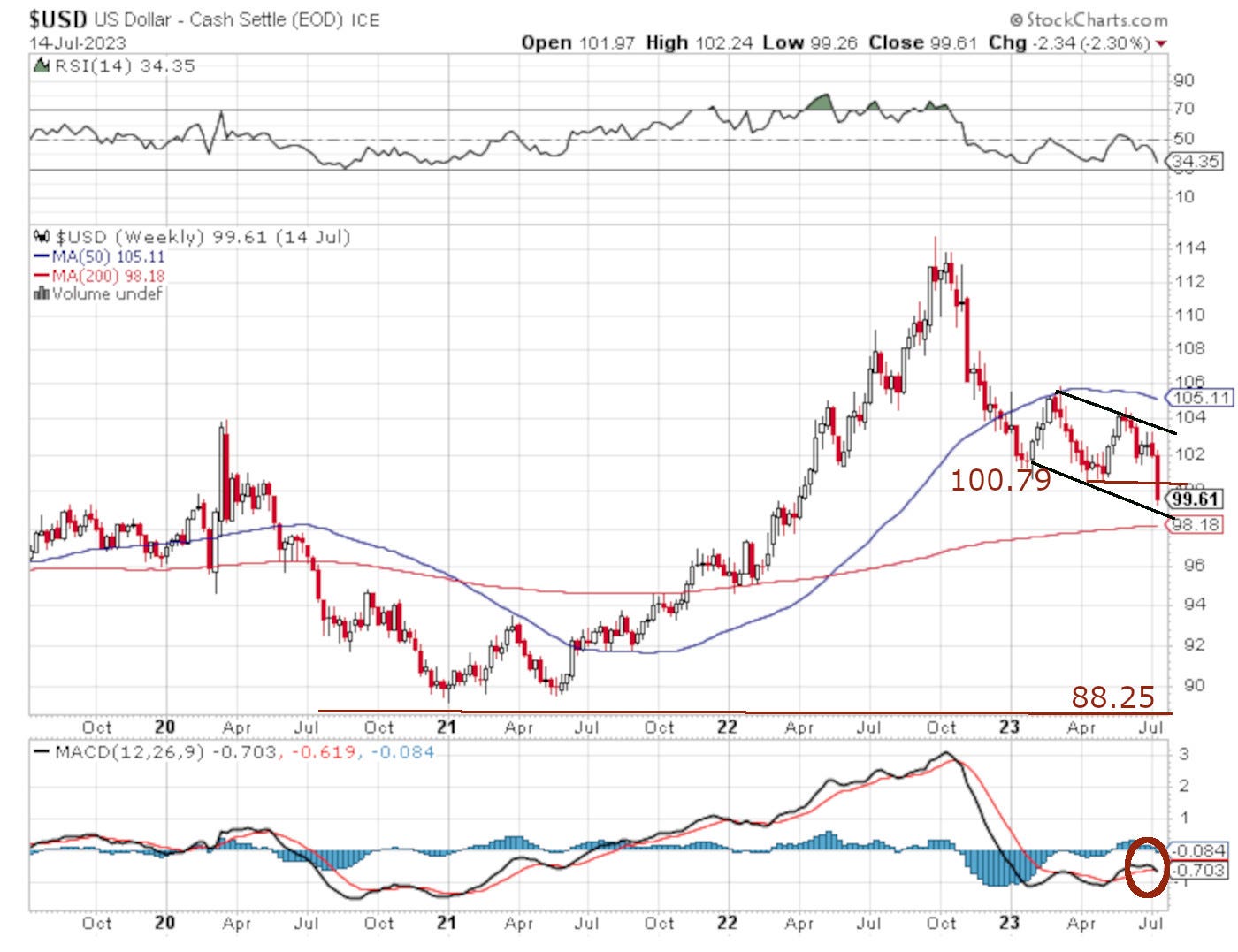“I’ve been listening to the death of the US dollar since 1966. Every two years, somebody comes along and says, ‘This is the death of the US dollar.’ You only have to ask yourself one question: if you’re a sovereign wealth fund – I don’t care what country – Middle East country, Eastern, Western Europe, where is the majority of your wealth right now? It’s sitting in the S&P 500 denominated in the US dollar… the basic unit of wealth and storage of wealth remains the US dollar.” – Kevin O’ Leary
“The dollar is not losing its status any time soon” – John Authers, Bloomberg
“Before jumping to the conclusion that the dollar’s recent swoon could be marking the beginning of its end as the world’s dominant international reserve currency, we should ask a basic question: Is the Eurozone economy really in such better shape than that of the United States to allow the euro to pose a real challenge to the dollar?” – Desmond Lachman, The Hill
Besides the above three quotes, there literally are dozens more like-minded opinions expressed by so-called “experts” that the US dollar will remain the hegemonic king of fiat for decades to come, all of whom make the same five massive mistakes:
(1) They formulate these conclusions based through a rigid lens of Western bias as if Central America, Eurasia, South America and Africa have no say in this matter and the only alternate option of migration away from the USD is the Euro;
(2) They formulate their opinions on the basis that because it has not happened to the dollar, even though dozens of fiat currencies have found their intrinsic value of worthlessness in the history of fiat, that it cannot happen to the dollar;
(3) They believe that another currency has to be mass adopted at the retail level to further significantly impact the USD and have no understanding of how a mass migration away from the USD to another currency, like the MWS (Moscow World Standard)/BRICS gold backed currency at the bilateral trade level will kill the dollar;
(4) They simply are too rigid in their thinking to ever consider the fact that they are severely wrong in their assessment; and
(5) Their knowledge of dedollarization developments for the past two decades among every nation that is not part of the NATO alliance is near null so they believe this dedollarization process is overhyped and that there is little to no chance of the USD falling much further than it already has.
If we look at the below chart, experts such as the ones I quoted above, likely take a glance at this chart and believe that the USD will rebound strongly from this point and that the 200-week moving average in the chart below will hold. While a rebound is certainly possible after a relentless recent drop, any rebound will only be a dead-cat bounce after which the trend will continue downward. Given the four-decade long weakness of the Japanese yen, one of the components against which the dollar is measured in the dollar index, it is astounding how feeble the USD has been despite the massive weakness of other components in the dollar index.
But don’t be fooled by the chart above which is like staring at one giant redwood in a forest of ten thousand redwoods. Let’s pull back to look at the wider forest in the below 20-year USD index chart. The much wider perspective presents a much more dire outlook for the USD. Even if one had taken action just a year ago in preparation for the demise of the USD, actionable preventive measures could have easily produced a beneficial 30% difference in fiat currency purchasing power, depending on the nation in which you reside and the fiat currency that comprises the bulk of your savings (just consider the real-world, fully applicable to real life calculations I outlined here).
P.S. If you’d like, you may also subscribe to my newly launched free Telegram channel, skwealthacademyofficial, here, to receive, on occasion, a free investment tip or additional exclusive content.
Keep reading with a 7-day free trial
Subscribe to Building Wealth With Tomii Academy to keep reading this post and get 7 days of free access to the full post archives.






